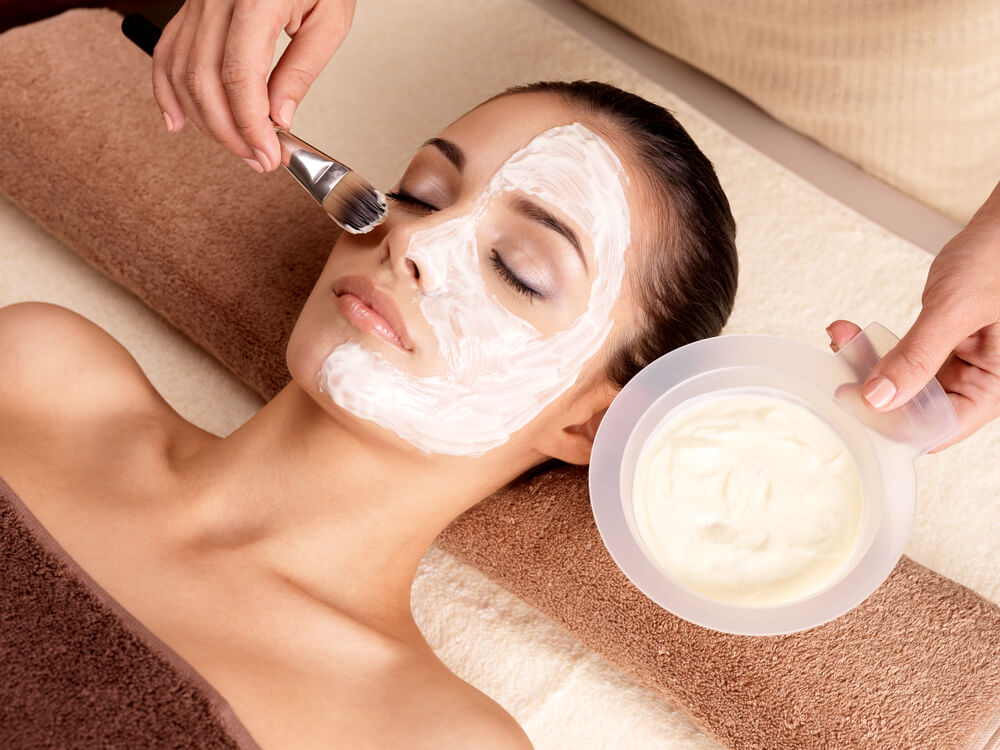Facials are an extremely popular skin care treatment that many women use. Facials are associated with pampering and nourishing your skin, but does anyone stop to question if they are good for your skin? That’s what we are going to determine, with the help of Olivia Stephens Salon & Spa, a hair salon spa in Palm Beach.
Overall, facials are good for your skin; however, there are some chemicals that should be used in moderation or avoided all together, as these chemicals can cause adverse reactions in some people. Keep reading to find out how facials can benefit your skin and which ingredients to avoid.
What Is a Facial?
A facial is a skin care treatment that cleanses the pores, exfoliates dead skin away, and treats common skin concerns and is usually done by a licensed esthetician. They usually involve multiple steps to help the skin look and feel younger and healthier.
Each facial should be tailored to your skin type. There is no one-size-fits-all in the facial world, because what’s good for your friend’s skin isn’t necessarily what is good for your skin!
Facials sometimes contain harmful chemicals but there are some that contain little to no chemicals that are perfectly safe for your skin.
Facial Steps
A basic facial usually involves five steps.
- Deep cleansing: This step cleanses the skin by going deep into pores and getting out dirt and oil.
- Blemish control: Usually involves a method of extraction for pimples, blackheads, and other blemishes. This is either done by hand or with a special metal skin care tool.
- Pampering: This step typically involves a massage and steam treatment. Massage of the face is said to improve lymphatic drainage, according to Groupon, and it also improves circulation in your face.
- Mask: A face mask or peel is applied to the face, which could be used either to hydrate your skin or reduce oiliness, depending on your skin type.
- Moisturizer: In the final step, a moisturizer is applied to your face to top off your facial and leave your skin feeling irresistibly soft.
Benefits of Facials
Facials can benefit your face tremendously! As mentioned above, they are meant to nourish the skin and make a noticeable difference in the look and feel of your skin. Here is a quick list of benefits you get from facials.
- Cleanses the skin
- Helps prevent aging
- Detoxes the skin
- Balances your skin type
- Eliminates pimples and blackheads
- Rejuvenates skin
- Removes dead skin
- Promotes circulation in the face
- Helps eliminate dark circles under the eyes
- Gives your face a natural glow
- Evens out your skin tone
Precautions When Receiving a Facial
As with every skin care routine, there are precautions you should take when you decide you want a facial, especially if it’s your first time getting one.
- Do a patch test: This is something you should do before applying anything new to your skin (especially your face) to make sure you don’t have any allergic reactions.
- Inform your esthetician about any allergies you know about involving your skin or any skin care product.
- Only get your facial at a trusted and reputable salon. That way you know you are getting the best treatment possible.
- Avoid sun: The ingredients used in a facial can make your skin extremely sensitive to the sun. You should use sunscreen or a hat to protect your skin in the sun for at least a week after your facial.
- Don’t use soap for a few days since your skin can be sensitive after a facial.
Ingredients to Avoid
There are many ingredients that just aren’t good for our skin, and some that may benefit our skin but actually cause more harm than good. If you are looking to get a facial with no harmful chemicals, you may want to be wary of the following list of ingredients when getting a facial.
- Parabens: They’ve been said to cause cancer, but that’s never been proven. What they do is penetrate your skin, get down in your tissue, and make a home. They become part of you and are also said to mimic estrogen. Too much of that can cause breast cell division, which can cause tumors.
- BHA: This chemical can cause your skin to be more susceptible to the sun’s damaging effects and therefore should be used with sunscreen and should be avoided on children, according to the FDA.
- Triclosan: According to the FDA, excessive or long-term exposure to this chemical can cause a decrease in the levels of some thyroid hormones, and it has been linked to skin cancer in animal studies.
- Fragrance: Since there are no requirements to list what chemicals go into a “fragrance”, there are often many chemicals in that delicious smell that you don’t know about. Fragrance can also be a human carcinogen depending on what chemicals it contains, so always ask for fragrance-free whenever possible!
- Polyethylene (PEGS): A mixture of several petroleum-based products that contains a known human carcinogen and can also cause serious side effects.
- Retinyl palmitate, retinyl acetates, retinoic acid, and retinol: These ingredients are often found in moisturizers and can become carcinogenic in sunlight, which means they could cause skin cancer.
Final Word of Advice
Facials are good for the appearance of your skin, and when you avoid all the harmful chemicals, you can make them even more beneficial to the look, feel, and health of your skin.
All-in-all, you shouldn’t have any problem going to the salon every couple of months to pamper your skin, just don’t get carried away and always follow the above precautions.

